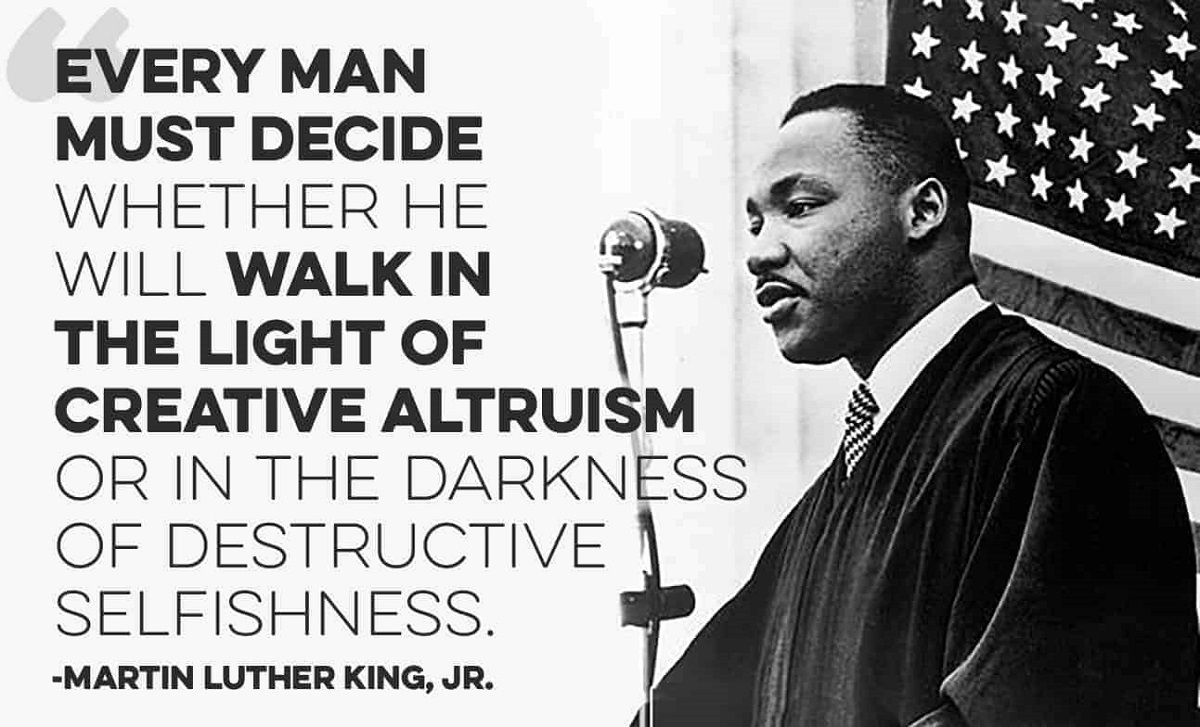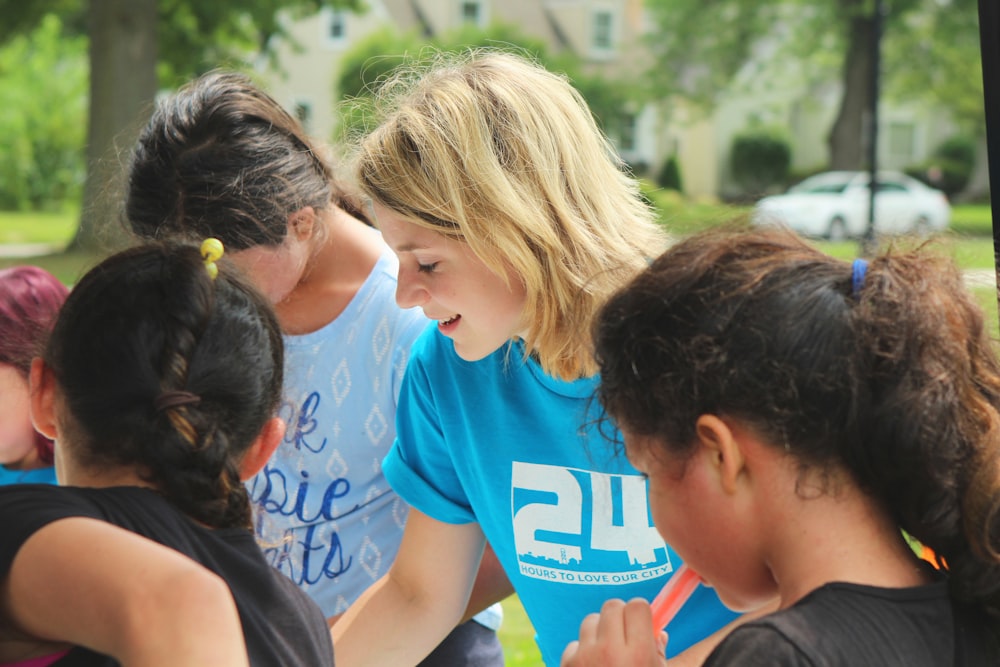
Altruistic behavior can be easily defined as a selfless concern for other people. Caring about the needs of others comes very naturally to an altruist. Altruism is the practice of having the best interests of others at heart, rather than acting based on one’s own self-interest. When you do things for others without an agenda and without expecting anything in return, you are following the moral practice of altruism. Your good deeds may not bring you any tangible rewards or advantages, but they end up impacting other people in a positive way, which enriches your life.
This selfless, altruistic behavior therefore forms strong bonds in your relationships, touches all your relationships, and ends up enriching your life.
Altruistic behavior often involves expending extra energy and effort on others, despite how that effort might drain you. When you think about how happy you made someone else, or how helpful you were able to be, you end up feeling energized with positivity.
While many people believe humans to be fundamentally self-interested, altruists stand out due to their unwavering selflessness, generosity and humility. Not only do philanthropic behaviors make you kinder, but they also boost your health and mental well-being. Being compassionate and altruistic also results in a better relationship with your spouse or partner.
Some people just naturally feel happier when they’re making someone else happy. Altruists put others first, and this often means they take on the burden of a negative outcome instead of letting the other person take on that burden.
We live in a world where ‘receiving’ is often preferred over ‘giving’. However, those select few who surpass this pitfall tend to reap the benefits in both quality of life and personal satisfaction. The Harvard Study of Adult Development, which tracked the lives of 724 men over 75 years, concluded that social relationships lead to a life filled with happiness.
In the words of Martin Luther King, “Every man must decide whether he will walk in the light of creative altruism or in the darkness of destructive selfishness.”
The social benefits enjoyed by altruistic people are no accident. It’s clear why selfless generosity is the greatest virtue anyone can possess.

Are You an Altruist?
Do your actions personify selfishness or selflessness? Do you rely more on egoic action or altruistic behavior? Are you helpful and warm-hearted by nature or only concerned about your own wellbeing? Reflect on the following benchmarks and know for yourself, for below are some signs you’re an altruistic person:
1. You Feel Good After Helping Others
You feel good whenever you help someone. This is what many researchers call a ‘helpers high’ – a gentle, giddy, butterfly-like feeling in your body. You don’t see helping someone as a waste of time and energy. You don’t wish you had done something for yourself instead.
Your motivation for altruistic behavior is not to boost your ego, but rather the knowledge that it’s the right thing to do. You do good for others and embrace this as who you are rather than doing it for other people’s approval.

2. You Put Others First
Whether it’s a promotion at work or something as simple as ordering at a restaurant, you put others first and go with what they like. More often than not, you end up doing something or going somewhere just because the other person wanted to.
Your small acts of kindness and selflessness often go unnoticed, but you also don’t put a lot of emphasis on them. Even when people notice your altruistic behavior and try to be thankful, you accept that with humility.
3. You Empower People
Instead of dumping your emotional issues on people and being a pain to be around, you empower others in day-to-day life. You support, encourage and empower others, because you’re an altruist. Letting people know their true worth comes naturally to you. You often motivate your friends and family to go after their dreams and do what they love. This is an example of altruistic behavior.
Altruistic individuals pump others up with positive energy, and so do you. Your help others reach their full potential and be successful – even if it means putting your dreams on the sideline for a while to help someone.
4. People Love to Be Around You

Since you believe in others and rarely question their caliber, most people love to hang out with you. Altruistic behavior makes the lives of those around you better. You value others and they reciprocate by spending time with you. Selflessness is characterized by helping others without expecting anything in return from them. You spread love by being positive and you’re treated well because, ‘what goes around comes around’. Altruists tend to build and maintain very positive and healthy relationships.
5. You Serve the Community
You like to know what’s going on within your community, so you do your best to find out where the needs lie, and get involved. Whether it’s making cookies for those in line at the homeless shelter down the street, volunteering at an animal shelter, raising money for the local school, or something as simple as helping your neighbor move – you figure out where your efforts are required and then offer them willingly.
6. You Recognize the Value of Little Things
You’ve learned to give not because you have a lot, but because you know exactly what it feels like to have nothing. After struggling through life, you’ve reached a place where you like to help as many people as you can because you don’t want them to struggle as you did.
You share without asking, usually at the expense of your convenience. However, you keep on giving in the hopes that someday someone in dire need will be helped by your actions. You deny yourself so that others can have more.
Not all altruistic people come from a place of struggle or hardship. People born into wealth can still be very altruistic. Much of your altruistic behavior is determined by your genes, but we’ll get to that later.
7. You Don’t Take Yourself Too Seriously

Your altruism resides in realizing that there are some things in the world more important than your own life and happiness. You have the realization that you are but a small unit on a small planet. The values you espouse are connected to the well-being of your fellow beings and go beyond your personal likes and dislikes.
8. You Lead by Example
Instead of preaching the importance of helping others, you do it without making a big fuss about it. When people request to repay your kind deeds, you tell them to pass it on or “pay it forward”. In this sense, you’re teaching altruistic behavior to others by leading by example. You also recognize that some people can have the best of intentions but are incapable of following through. You let go, surrender to the flow of life, and move on to your next altruistic act.

Being Altruistic and Knowing When to Stop
As with any other virtue, altruistic behavior can be honed even if you have just started helping others or haven’t done so yet. However, one pitfall that all selfless people run into is recognizing toxicity.
In some cases, your altruistic acts and kind nature will not be appreciated, or will be taken advantage of. You might run into people who are wolves in sheep’s clothing and only want to take advantage of your generosity.
This is where prudence comes into play. You need to be pragmatic, and judge whether a person really needs your help, or just wants to milk you for all you’re worth.
This wisdom is not something you will master in one day. Nevertheless, exercising caution will protect your altruistic inclinations from people who are only motivated by their self-interests.
Is Being Altruistic Genetic?
Scientists have recently discovered that the likelihood of someone performing an altruistic act is about 50% genetically determined. Scientific researchers have also determined that 30 – 60% of altruistic tendencies can be explained by your DNA.
If you’d like to find out if the virtuous trait of altruism is in your genes, get a comprehensive personality and behavior traits report through CircleDNA.
